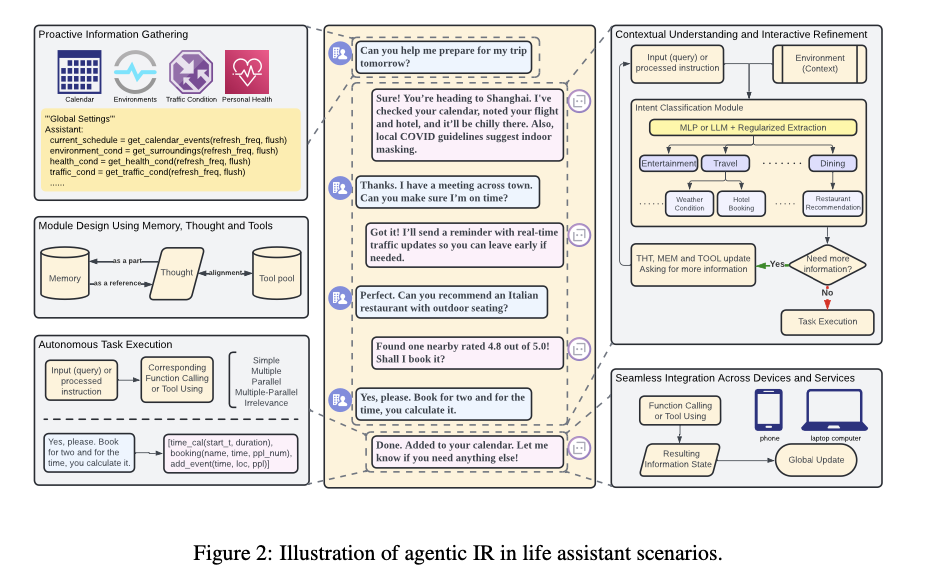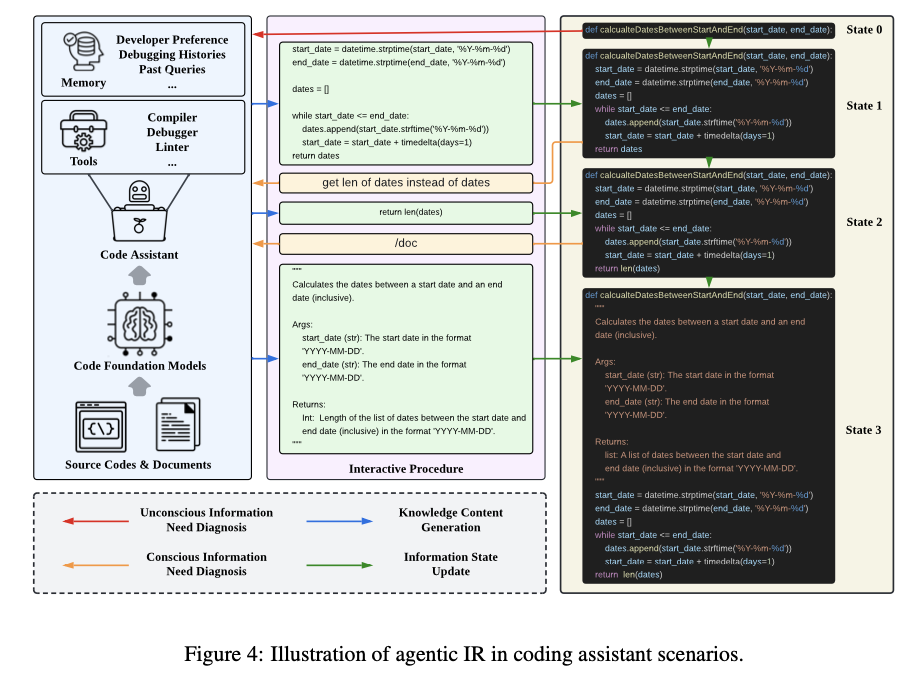One of the fundamental challenges in IR is that classical systems are not designed to handle dynamic multi-step tasks. Current IR frameworks are based on a predefined, immutable architecture that only allows for single-step interactions; Users must explicitly review queries to obtain the desired results. Therefore, conventional models are falling far behind as users increasingly request systems that are more sophisticated and context-sensitive for tasks that require real-time decision making or iterative reasoning. The challenge is to develop an IR that, on its own, performs multi-turn reasoning and provides more flexible and efficient responses tailored to complex user requirements and changing tasks.
Most IR tasks, such as web search and recommendations, have been conventionally performed using well-defined static procedures such as indexing, sorting, and filtering. The general idea behind traditional web search engines is to use inverted indexes to match query terms to documents. Recommender systems are similarly implemented as processes comprising several rounds of ranking and re-ranking items based on user preferences. Although they have been sufficient and work quite well for simpler applications, the shortcomings of these methods become evident in more complicated, interactive, multi-step processes.
These systems are limited to a one-step interaction model whereby the user has to modify queries to adjust results repeatedly. The static nature of such approaches not only restricts the efficiency of the retrieval process, but prevents them from addressing tasks that require complex reasoning, dynamic decision making, or real-time adaptations. The inflexibility of these architectures limits their use for diverse, context-rich applications where iterative problem solving or continuous user interaction is essential.
Researchers at Shanghai Jiao Tong University introduced agentic information retrieval (Agentic IR), a new paradigm that fundamentally changes the way IR systems work. Conventional IR is based on static query-based retrieval. In contrast, Agentic IR implements an ai-powered agent that dynamically interacts with the environment in which the agent can perform multiple actions across multiple steps to achieve a user-specified goal. This shifts the agent's role toward complex reasoning, whereby it readjusts its behavior to a constantly updated model of the user's needs, thus achieving adaptive and efficient information retrieval.
Agentic IR integrates architecture with memory, thought processes, and tools to enable a system to remember historical context, reason complex tasks, and use real-time data sources such as search engines or databases.
This enables the agent to solve problems more flexibly and interactively across a wide range of tasks, including personal assistance and business intelligence, to real-time decision support. In fact, the ability to employ stratagems such as rapid engineering, recovery augmented generation, and reinforcement learning fine-tuning significantly improves the system's ability to adapt to different tasks and environments, offering a marked improvement over traditional models.

The Agentic IR architecture focuses on an agent policy that acts on user input and environmental interaction to iteratively refine a recovery process. At each step of time, the agent updates its information state, which includes memory to store context, thought processes through which the agent performs complex reasoning about the ideas at hand, and tools to draw on external resources at each step. in real-time databases. This function g(st, ht, MEM, THT, TOOL) integrates these components to support the dynamic processing and refinement of information by an agent during each interaction stage.
Key techniques to be used for Agentic IR include rapid engineering to generate task-specific inputs, augmented recall generation for optimization of actions based on past interactions, and reinforcement fine-tuning to improve decisions through real-time feedback and exploration. of the environment. Finally, such an architecture can also enable collaboration between multiple agents: a multi-agent system where agents could handle complex tasks that require coordination and sharing resources. This would introduce better problem solving in many practical areas.
Agentic IR demonstrates substantial improvements in several domains, including personal assistance, business intelligence, and programming support. In particular, it dominates task completion accuracy, with over 90% on complicated multi-step tasks, reducing task completion time by up to 40% compared to traditional systems. With the ability to make real-time decisions and dynamic reasoning, it is particularly suitable for an application with iterative interaction and rapid adaptation. These improvements show the potential to significantly increase real-world performance, delivering faster, more accurate responses and better user experiences across a wide variety of different tasks.

In conclusion, agentic information retrieval is a radically new approach that breaks away from the composite characteristics of static, query-based IR systems. By introducing dynamic multi-step reasoning and incorporating memory, thought processes and tool utilization, it offers a flexible and adaptive solution to complex tasks. The novelty of this system brings clear improvements in task efficiency, accuracy and real-time problem-solving skills, in stark contrast, and therefore stands at an important milestone in the development roadmap of intelligent autonomous agents. As ai technologies will continue to grow, Agentic IR may well shape the way information is retrieved in the future and therefore show its potential as a key enabler for next-generation ai-powered applications.
look at the Paper. All credit for this research goes to the researchers of this project. Also, don't forget to follow us on twitter.com/Marktechpost”>twitter and join our Telegram channel and LinkedIn Grabove. If you like our work, you will love our information sheet.. Don't forget to join our SubReddit over 55,000ml.
(Next live webinar: October 29, 2024) Best platform to deliver optimized models: Predibase inference engine (promoted)
Aswin AK is a Consulting Intern at MarkTechPost. He is pursuing his dual degree from the Indian Institute of technology Kharagpur. He is passionate about data science and machine learning, and brings a strong academic background and practical experience solving real-life interdisciplinary challenges.
<script async src="//platform.twitter.com/widgets.js” charset=”utf-8″>
 NEWSLETTER
NEWSLETTER





